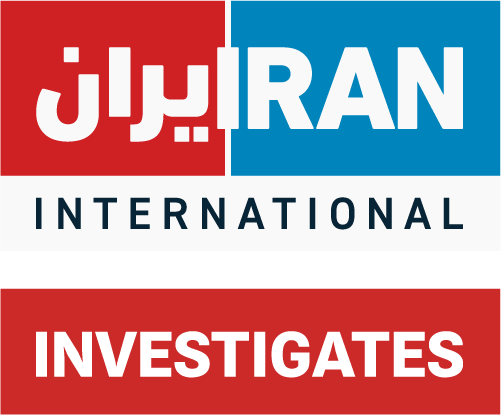Iran’s influence network
Covert Ties Between Iran And The International Crisis Group

The Iranian government formed an undisclosed alliance with the International Crisis Group during the Obama administration and used the prominent think tank to lobby the US government on its behalf about nuclear issues, an investigation by Iran International shows.
The cooperation with the Crisis Group was carried out through the Iranian Foreign Ministry’s in-house think tank, the Institute for Political and International Studies (IPIS), according to the cache of documents obtained by Iran International and shared with Semafor. The two organizations jointly reported parts of this story together, and wrote and published their stories independently.
Throughout the nuclear negotiations between Iran and the world powers in 2014 and 2015, analysts from the Crisis Group advocated views of the Iranian government, which were often in contrast with the positions of the Obama administration, according to the documents and experts involved in the negotiations.
In 2016, the Crisis Group and the IPIS signed a memorandum of understanding (MoU), but never made it public. The MoU outlined a framework for “scientific and academic interactions,” aimed to “promote and intensify the friendship and the mutual understanding,” the documents show.
The Crisis Group has been heavily involved for almost a decade in negotiations about Iran's nuclear program, as well as the lifting of sanctions on the Islamic Republic. The think tank has given recommendations to the Obama, Trump, and Biden administrations on Iran, as well as the U.S. Congress. However, the Crisis Group never made public the agreement it had with the Iranian foreign ministry, and its analysts never mentioned their close ties with the Iranian officials.
The Crisis Group’s spokesperson Elissa Jobson told Iran International, “We do not discuss particular MOUs. Generally, our MOUs are intended to protect the security of our staff in conflict zones.”
A half-dozen leaders in Western think tanks expressed surprise to Iran International and Semafor that the Crisis Group entered into a formal research agreement with the IPIS and said the partnerships with foreign governments, especially Iran, could raise concerns about the think tank's objectivity and potential lobbying for foreign interests.
“Iran's foreign ministry often puts out disinformation and aggressive comments about the United States, Israel, and European countries,” said David Albright, who serves as president of the Institute for Science and International Security. “The MoU, by its structure, increases the chances that the Crisis Group is a conduit for Iranian disinformation and is serving, likely inadvertently, as a lobbyist on Iran's behalf with other governments and entities.”
Iran International and Semafor reported in September that more than 10 Iranian analysts in Western think tanks, including two current employees of the Crisis Group - Ali Vaez and Dina Esfandiary - were part of an influence network formed and guided by Tehran. The investigation revealed that the IPIS in 2014 formed this network of overseas academics and researchers, called the Iran Experts Initiative (IEI), to increase its influence on the global stage.
While some of the IEI members, including Vaez, defended their participation in the IEI and called it an “informal” platform, the Iranian Foreign Ministry’s documents and recollections by former Iranian foreign minister Mohammad Javad Zarif illustrate how useful the IEI members and the Crisis Group had been to Iran’s nuclear diplomacy.
Some think tank leaders said the Crisis Group’s secret MoU with Iran, the close relationship of its employees with Iranian officials, and its lobbying efforts for foreign interests could increase suspicion on the Crisis Group's public and private statements about Iran.
They also voiced surprise at the Crisis Group’s ties with the IPIS since the organization, which operates under Iran’s foreign ministry supervision according to its website, has a long history of Holocaust denialism and frequently publishes articles against Israel.
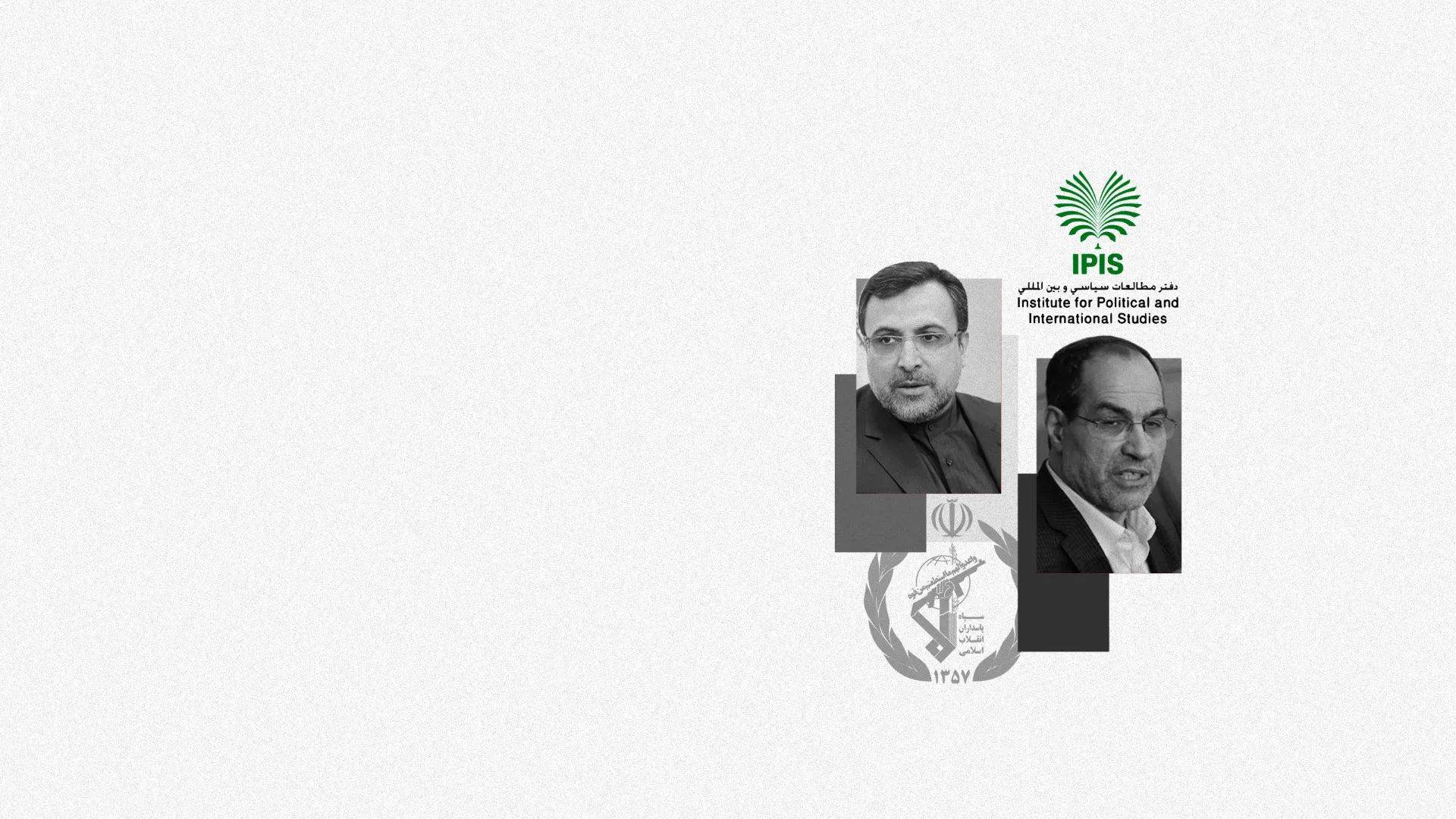
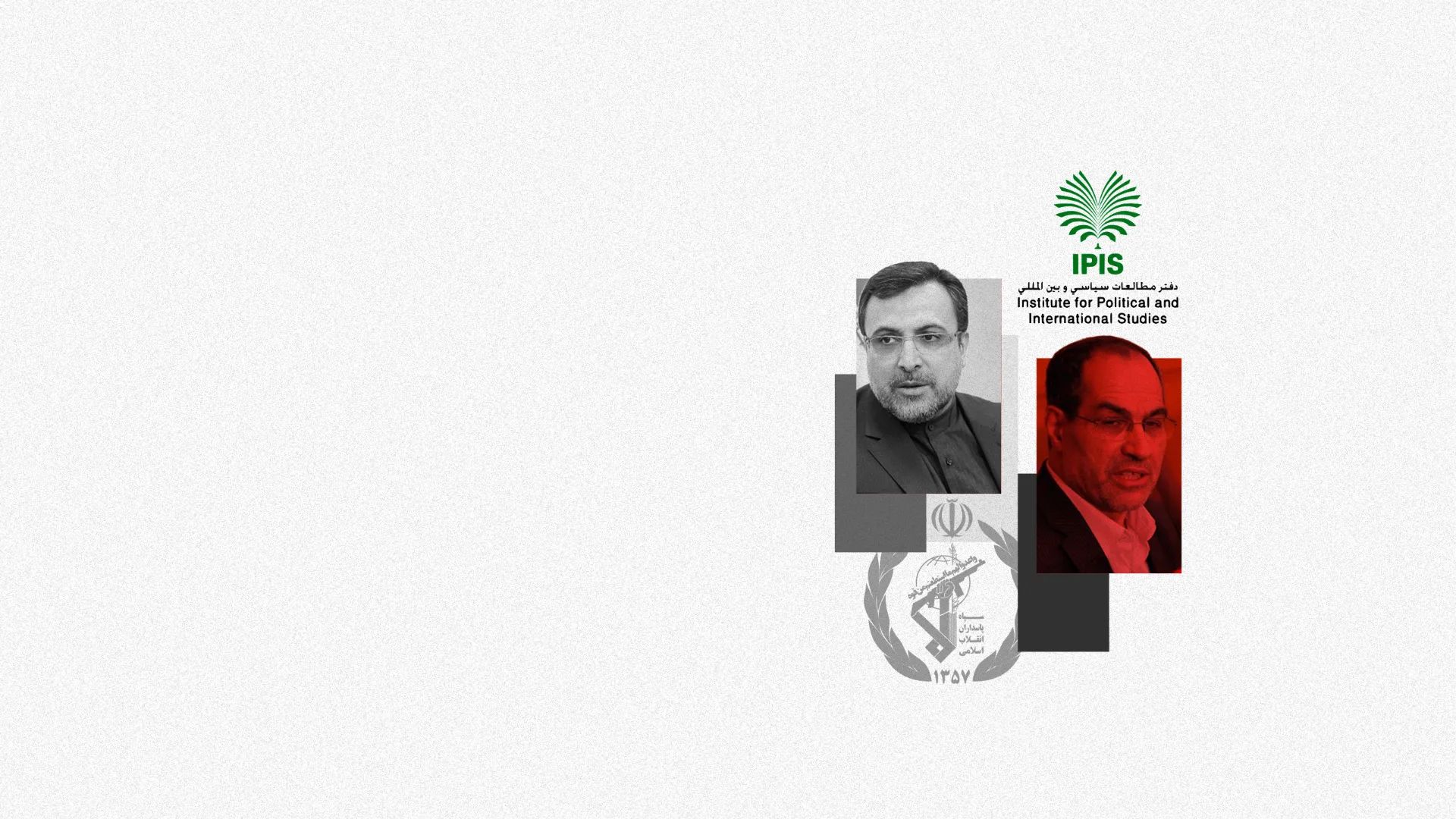
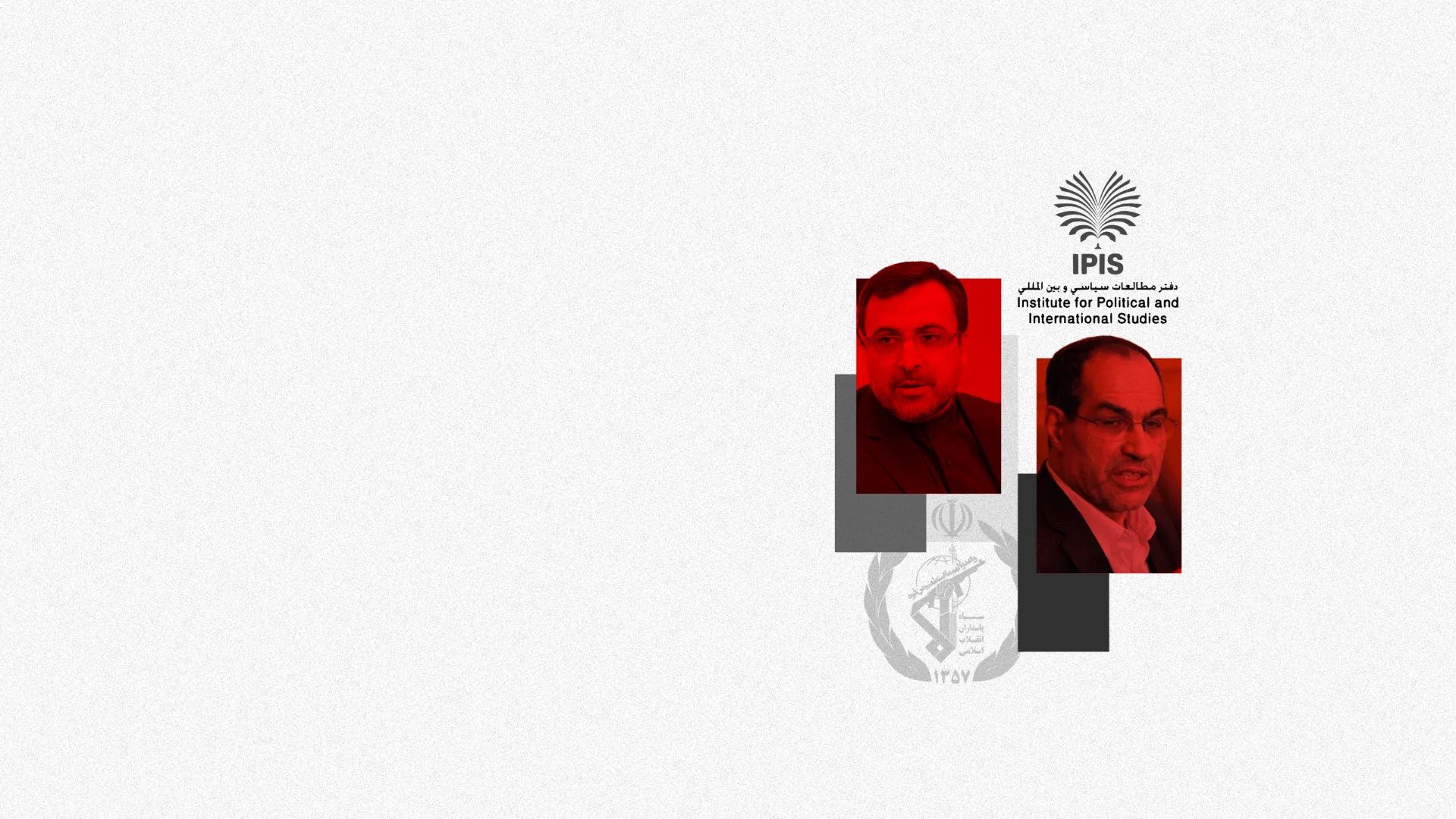
The Iranian government formed an undisclosed alliance with the International Crisis Group during the Obama administration and used the prominent think tank to lobby the US government on its behalf about nuclear issues, an investigation by Iran International shows.
The cooperation with the Crisis Group was carried out through the Iranian Foreign Ministry’s in-house think tank, the Institute for Political and International Studies (IPIS). Throughout the nuclear negotiations between Iran and the world powers in 2014 and 2015, analysts from the Crisis Group advocated views of the Iranian government, which were often in contrast with the positions of the Obama administration.
In 2016, the Crisis Group and the IPIS signed a memorandum of understanding (MoU), but never made it public. The MoU outlined a framework for “scientific and academic interactions”, aimed to “promote and intensify the friendship and the mutual understanding,” according to the cache of documents obtained by Iran International and shared with Semafor.
The Crisis Group has been heavily involved for almost a decade in negotiations about Iran's nuclear program, as well as the lifting of sanctions on the Islamic Republic. The think tank has given recommendations to the Obama, Trump, and Biden administrations on Iran, as well as the U.S. Congress. However, the Crisis Group never made public the agreement it had with the Iranian foreign ministry, and its analysts never mentioned their close ties with the Iranian officials.
The Crisis Group’s spokesperson Elissa Jobson told Iran International, “We do not discuss particular MOUs. Generally, our MOUs are intended to protect the security of our staff in conflict zones.”
A half-dozen leaders in Western think tanks expressed surprise to Iran International and Semafor that the Crisis Group entered into a formal research agreement with the IPIS and said the partnerships with foreign governments, especially Iran, could raise concerns about the think tank's objectivity and potential lobbying for foreign interests.
“Iran's foreign ministry often puts out disinformation and aggressive comments about the United States, Israel, and European countries,” said David Albright, who serves as president of the Institute for Science and International Security. “The MoU, by its structure, increases the chances that the Crisis Group is a conduit for Iranian disinformation and is serving, likely inadvertently, as a lobbyist on Iran's behalf with other governments and entities.”
Iran International and Samafor reported in September that more than 10 Iranian analysts in Western think tanks, including two current employees of the Crisis Group - Ali Vaez and Dina Esfandiary - were part of an influence network formed and guided by Tehran. The investigation revealed that the IPIS in 2014 formed this network of overseas academics and researchers - called the Iran Experts Initiative (IEI) - to increase its influence on the global stage.
While some of the IEI members, including Vaez, defended their participation in the IEI and called it an “informal” platform, the Iranian Foreign Ministry’s documents and recollections by former Iranian foreign minister Mohammad Javad Zarif illustrate how useful the IEI members and the Crisis Group had been to Iran’s nuclear diplomacy.
Some think tank leaders said the Crisis Group’s secret MoU with Iran, the close relationship of its employees with Iranian officials, and its lobbying efforts for foreign interests could increase suspicion of the Crisis Group's public and private statements about Iran.
They also voiced surprise at the Crisis Group’s ties with the IPIS as the organization, which operates under Iran’s foreign ministry supervision according to its website, has a long history of Holocaust denialism and frequently publishes articles against Israel.

SIGNING MoU

In 2006, the IPIS hosted a conference titled "Review of the Holocaust: Global Vision" in Tehran, which faced significant backlash for giving a platform to several individuals who denied or questioned the Holocaust.
The George W. Bush administration, at the time, publicly condemned IPIS for seeking “to call the historical fact of those atrocities into question and provide a platform for hatred.” The US State Department denounced the gathering as "disgraceful," and Israeli Prime Minister Ehud Olmert called it "a sick phenomenon.”
More than 50 research institutions in Europe and the United States - including the Crisis Group - boycotted the IPIS for hosting the conference. The research institutions said in a statement that "through its complicity with the deniers of the absolute evil that was the Holocaust, IPIS has now forfeited its status as an acceptable partner."
Almost a decade later, as the Iranian foreign ministry under Zarif adopted a detente policy with the West, the IPIS embarked on signing research agreements with foreign think tanks to end its isolation, the documents showed.
Between 2014 and 2018, the IPIS signed almost a dozen MoUs with universities and research centers, including think tanks in China, Pakistan, and Jordan. Among the 50 Western institutions that cut ties with the IPIS, the Crisis Group and Stockholm International Peace Research Institute (SIPRI) were the only ones that reversed course and signed a formal agreement with the IPIS at that time, according to the emails and public records.
Another Western think tank called EastWest Institute also signed an MoU with the IPIS in 2016, and publicized it. The think tank was dissolved almost five years later.
The Munich Security Conference also staged a Core Group meeting with IPIS in October 2015 in Tehran. Among those on the guest list, according to an invitation list seen by Iran International, were a number of European business executives, but also Major General Qassem Soleimani, the head of the Revolutionary Guards' Quds Force who was killed in a U.S. drone attack in Iraq in 2020.
The Crisis Group’s MoU was signed in April 2016 by its then-president and chief executive officer, Jean-Marie Guéhenno, and the IPIS’ then-director general Mostafa Zahrani, who also played a major role in creating the IEI around the same time.
Almost a week after the Iran International and Semafor’s inquiry about the MoU with Iran, the Crisis Group published a note on its website, explaining its policy for signing MoUs with foreign governments. Crisis Group has characterized Iran International and Samafor’s recent articles on the Iran Experts Initiative as a disinformation campaign aimed at undermining its ability to engage with countries like Iran and prevent conflict.
“The main thing that is problematic is that if there's an agreement between two think tanks it is typically publicized. And if it's not publicized, it raises questions about what's going on here,” said Patrick Clawson, the director of research at the Washington Institute for Near East Policy, a Washington-based think tank. “An agreement with the IPIS is not a relationship with an NGO, it's a relationship with a government think tank.”
The text of the MoU, viewed by Iran International, showed the IPIS and the Crisis Group agreed to arrange off-the-record workshops once a year and facilitate at least one visit every three months for the Crisis Group's Iran analysts to meet Iranian officials. The IPIS also committed to helping facilitate an annual visit to Iran by the Crisis Group’s executive officers and board members through visa assistance and arranging meetings in Iran.
The initial talks between the Crisis Group and the IPIS began in 2014 through Vaez, the documents showed. At that time, Robert Malley was the director of the Crisis Group’s Middle East and North Africa Program. Malley tried to use the newly established channel to travel to Iran, according to the documents.
Malley joined Obama’s administration in 2014 to negotiate a nuclear deal with Iran, which was signed a year later. While he was in the government, Malley kept using Vaez to send messages to Zarif, the documents showed. Malley became president and CEO of the Crisis Group in January 2018.
Malley was appointed as President Joe Biden’s Special Envoy for Iran in January 2021, but was put on leave in June 2023, following the suspension of his security clearance amid an ongoing investigation. The exact cause of his suspension remains unclear. He did not respond to requests for comment.
The MoU had an initial duration of four years, with the possibility of automatic renewal unless canceled by either party with six months' notice. Jobson declined to say whether Crisis Group’s MoU with the IPIS remains in place, but stressed that no funding from Tehran has been involved.
The Iranian foreign ministry, the IPIS, Zahrani and Zarif did not respond to the requests for comment.
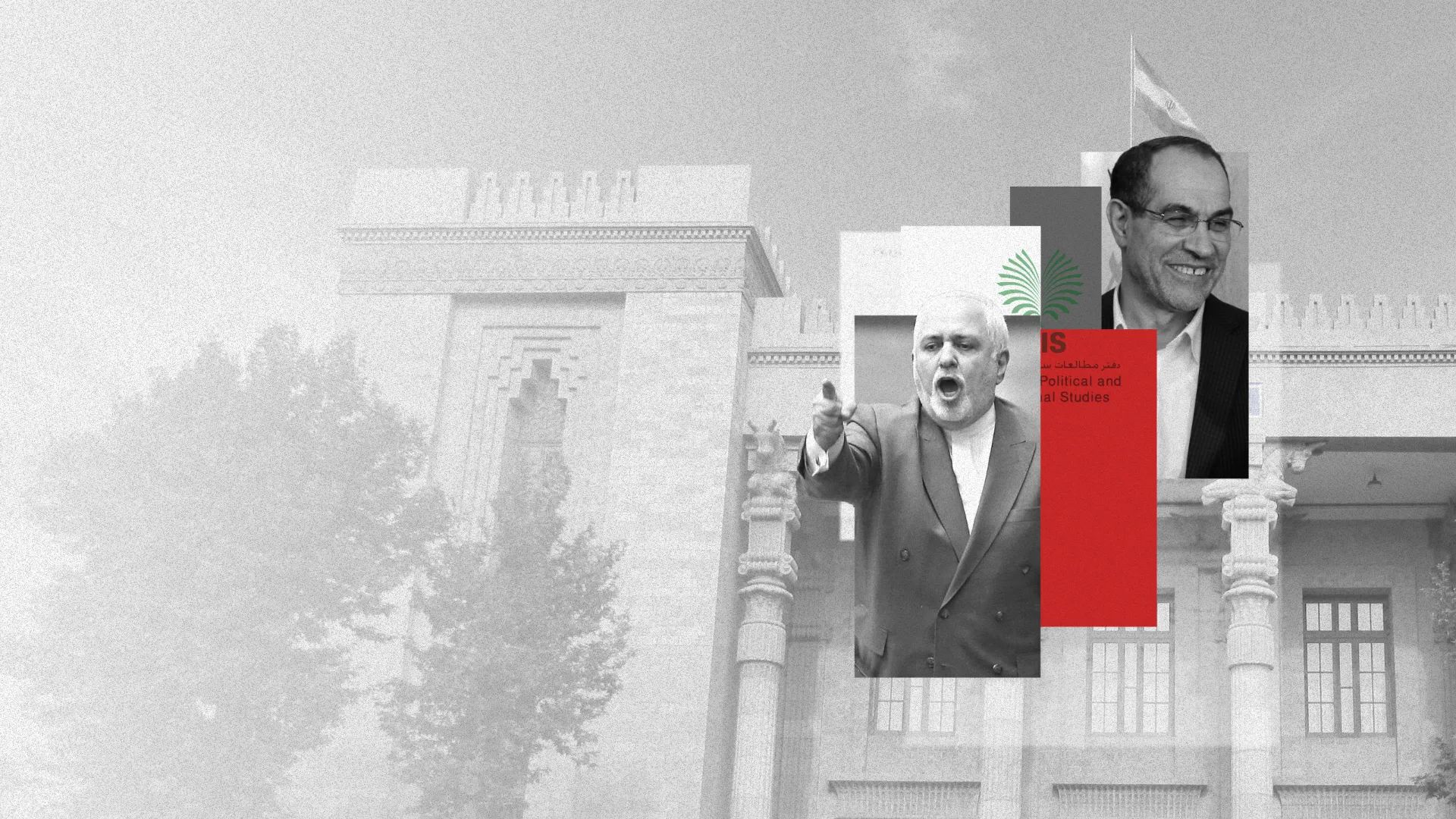
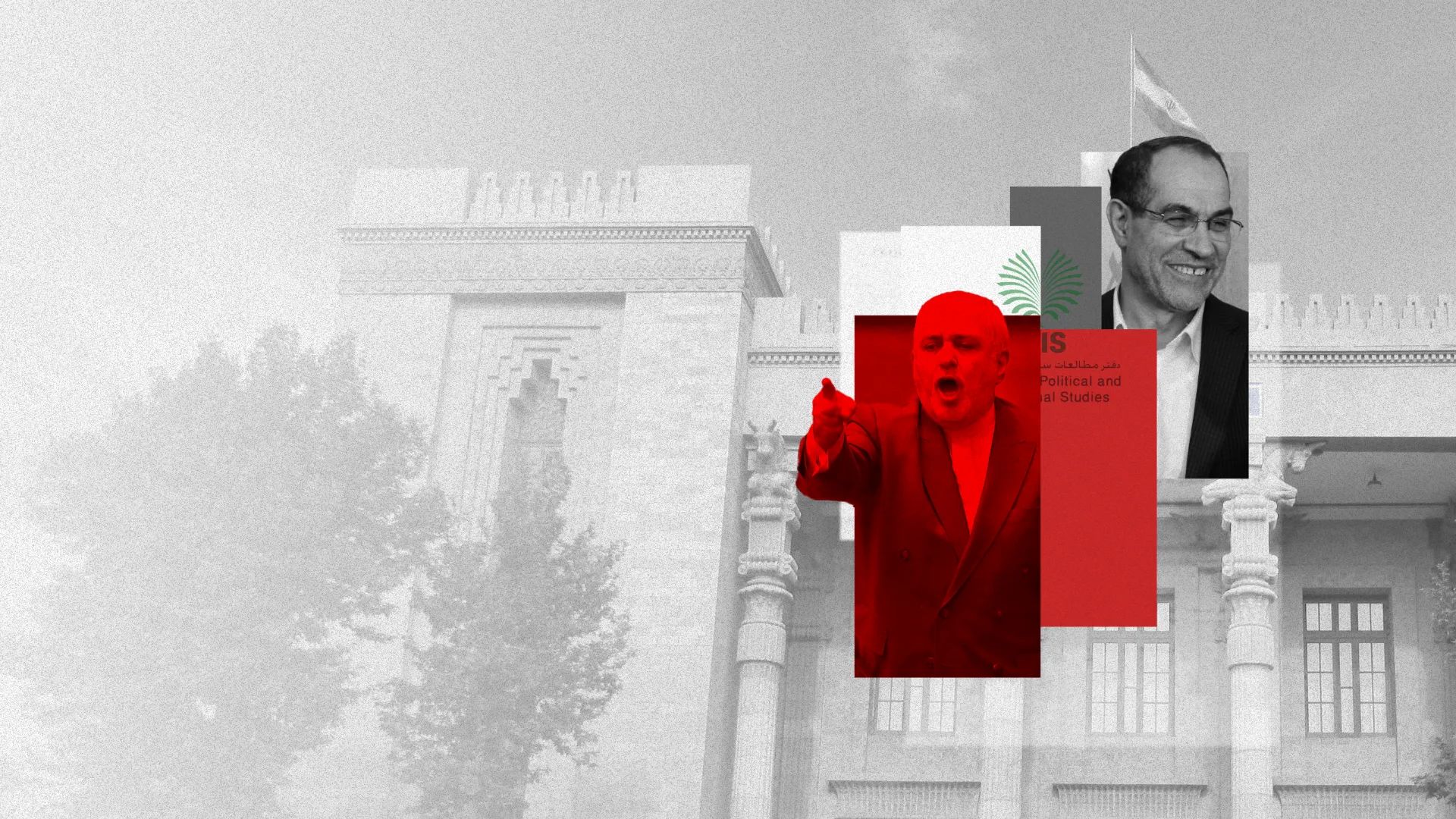
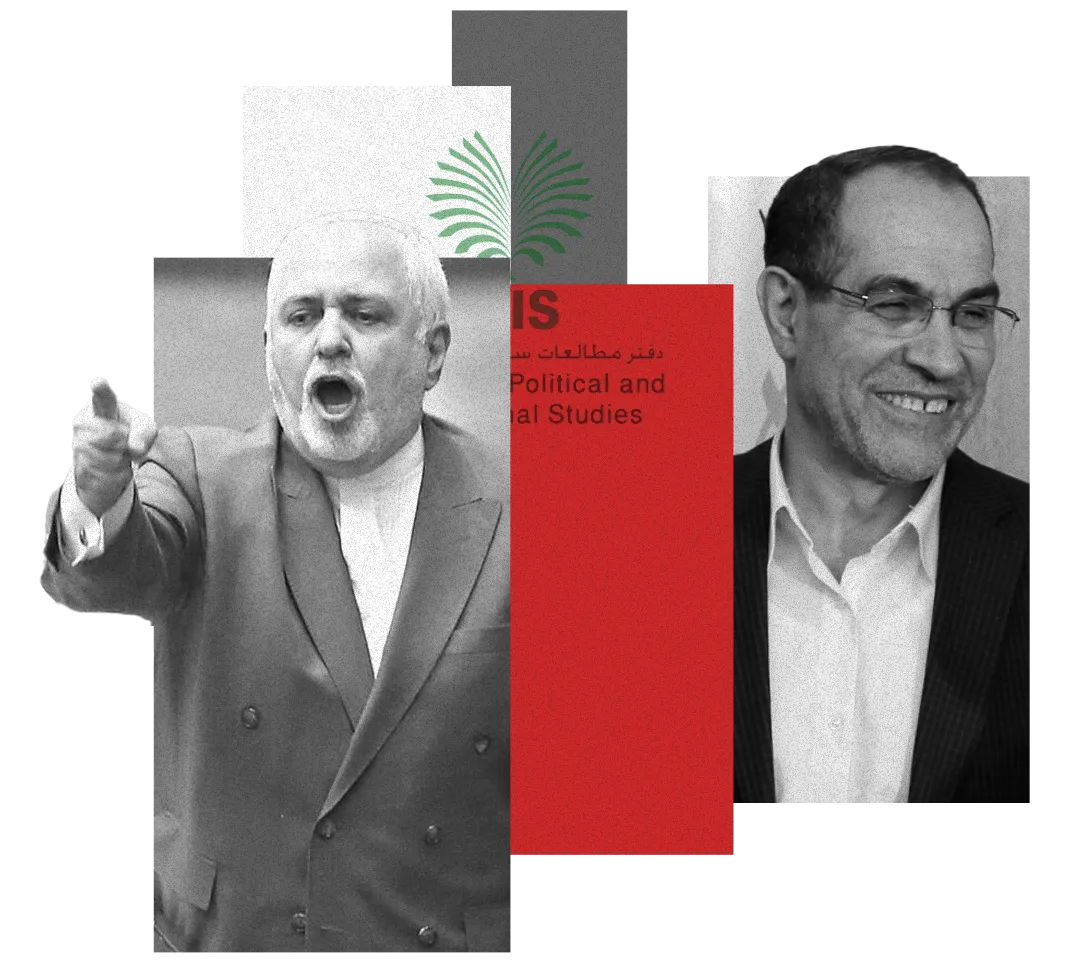
In 2006, the IPIS hosted a conference titled "Review of the Holocaust: Global Vision" in Tehran, which faced significant backlash for giving a platform to several individuals who denied or questioned the Holocaust.
The George W. Bush administration, at the time, publicly condemned IPIS for seeking “to call the historical fact of those atrocities into question and provide a platform for hatred.” The US State Department denounced the gathering as "disgraceful," and Israeli Prime Minister Ehud Olmert called it "a sick phenomenon.”
More than 50 research institutions in Europe and the United States - including the Crisis Group - boycotted the IPIS for hosting the conference. The research institutions said in a statement that "through its complicity with the deniers of the absolute evil that was the Holocaust, IPIS has now forfeited its status as an acceptable partner."
Almost a decade later, as the Iranian foreign ministry under Zarif adopted a detente policy with the West, the IPIS embarked on signing research agreements with foreign think tanks to end its isolation, the documents showed.
Between 2014 and 2018, the IPIS signed almost a dozen MoUs with universities and research centers, including think tanks in China, Pakistan, and Jordan. Among the 50 Western institutions that cut ties with the IPIS, the Crisis Group and Stockholm International Peace Research Institute (SIPRI) were the only ones that reversed course and agreed to cooperate with the IPIS at that time, according to the emails and public records.
Another Western think tank called EastWest Institute also signed an MoU with the IPIS in 2016, and publicized it. The think tank was dissolved almost five years later.
The Munich Security Conference also staged a Core Group meeting with IPIS in October 2015 in Tehran. Among those on the guest list, according to an invitation list seen by Iran International, were a number of European business executives, but also Major General Qassem Soleimani, the head of the Revolutionary Guards' Quds Force who was killed in a U.S. drone attack in Iraq in 2020.
The Crisis Group’s MoU was signed in April 2016 by its then-president and chief executive officer, Jean-Marie Guéhenno, and the IPIS’ then-director general Mostafa Zahrani, who also played a major role in creating the IEI around the same time.
Almost a week after the Iran International and Semafor’s inquiry about the MoU with Iran, the Crisis Group published a note on its website, explaining its policy for signing MOUs with foreign governments. Crisis Group has characterized Iran International and Samafor’s recent articles on the Iran Experts Initiative as a disinformation campaign aimed at undermining its ability to engage with countries like Iran and prevent conflict.
“The main thing that is problematic is that if there's an agreement between two think tanks it is typically publicized. And if it's not publicized, it raises questions about what's going on here,” said Patrick Clawson, the director of research at the Washington Institute for Near East Policy, a Washington-based think tank. “An agreement with the IPIS is not a relationship with an NGO, it's a relationship with a government think tank.”
The text of the MoU, viewed by Iran International, showed the IPIS and the Crisis Group agreed to arrange off-the-record workshops once a year and facilitate at least one visit every three months for the Crisis Group's Iran analysts to meet Iranian officials. The IPIS also committed to helping facilitate an annual visit to Iran by the Crisis Group’s executive officers and board members through visa assistance and arranging meetings in Iran.
The initial talks between the Crisis Group and the IPIS began in 2014 through Vaez, the documents showed. At that time, Robert Malley was the director of the Crisis Group’s Middle East and North Africa Program. Malley tried to use the newly established channel to travel to Iran, according to the documents.
Malley joined Obama’s administration in 2014 to negotiate a nuclear deal with Iran, which was signed a year later. While he was in the government, Malley kept using Vaez to send messages to Zarif, the documents showed. Malley became president and CEO of the Crisis Group in January 2018.
Malley was appointed as President Joe Biden’s Special Envoy for Iran in January 2021, but was put on leave in June 2023, following the suspension of his security clearance amid an ongoing investigation. The exact cause of his suspension remains unclear. He did not respond to requests for comment.
The MoU had an initial duration of four years, with the possibility of automatic renewal unless canceled by either party with six months' notice. Jobson declined to say whether Crisis Group’s MoU with the IPIS remains in place, but stressed that no funding from Tehran has been involved.
The Iranian foreign ministry, the IPIS, Zahrani and Zarif did not respond to the requests for comment.

TRAVELING TO TEHRAN

Guéhenno traveled to Tehran in December 2014, and participated in a conference hosted by the IPIS, titled World Against Violence and Extremism (WAVE), according to the emails and state media. Guéhenno delivered a speech at that conference.
Most Western states and think tanks steered away from the conference due to the IPIS’ history and its links to the Iranian government. The conference only attracted foreign ministers from three friendly countries, Syria, Iraq, and Nicaragua, according to the state media. The U.K.’s former Foreign Secretary Jack Straw and one-time French Prime Minister Dominique de Villepin also attended
“After the Holocaust denial conference, few reputable foreign institutes ever attended an event organized by the IPIS,” said Clawson.
Zahrani said in a private speech to the IPIS members, a copy of which was seen by Iran International, that he tried to use the WAVE conference to end the think tank’s isolation.
“It finally happened and the IPIS was put under sanctions… As the head of IPIS, removing sanctions was very important to me... I insisted on holding [WAVE] conference at the IPIS, so the sanctions on the IPIS are removed,” he said.
It was not clear which sanctions Zahrani was referring to, as the United States and other countries never officially placed the IPIS on a sanctions list.
Zahrani was an advisor to Zarif and a member of the Revolutionary Guards, an Iranian military organization currently designated as a foreign terrorist organization by the United States.
The IPIS continues to be vocal about its anti-Israel policies. The current head of the IPIS, Mohammad Hasan Sheikholeslami, congratulated Hamas two weeks after their October 7, 2023 attacks - which killed 1,200 Israelis - for their “glorious victory” and said the Palestinian group “disintegrated the fake concept of Israel,” according to an interview published on the IPIS website.
A sanctions attorney based in Washington said that even though the Crisis Group is headquartered in Brussels, if there was any involvement of a US individual within the organization in the MoU agreement, providing services to, or benefiting someone in Iran, without the issuance of a license by OFAC and without falling under the exemption for information exchange, that would have appeared to be a violation of the US sanctions on Iran.
The attorney, who requested anonymity, said that from a legal liability perspective, there is also a question of whether they complied with the registration requirements outlined in FARA or the Lobbying Disclosure Act if they were actively advocating for Iranian interests within the United States.
Jobson, the Crisis Group’s spokesperson told Iran International, “Potentially sensitive MOUs and other agreements involving funding from governments are reviewed by in-house and outside counsel to ensure that they comply with US law, including FARA and sanctions laws.”
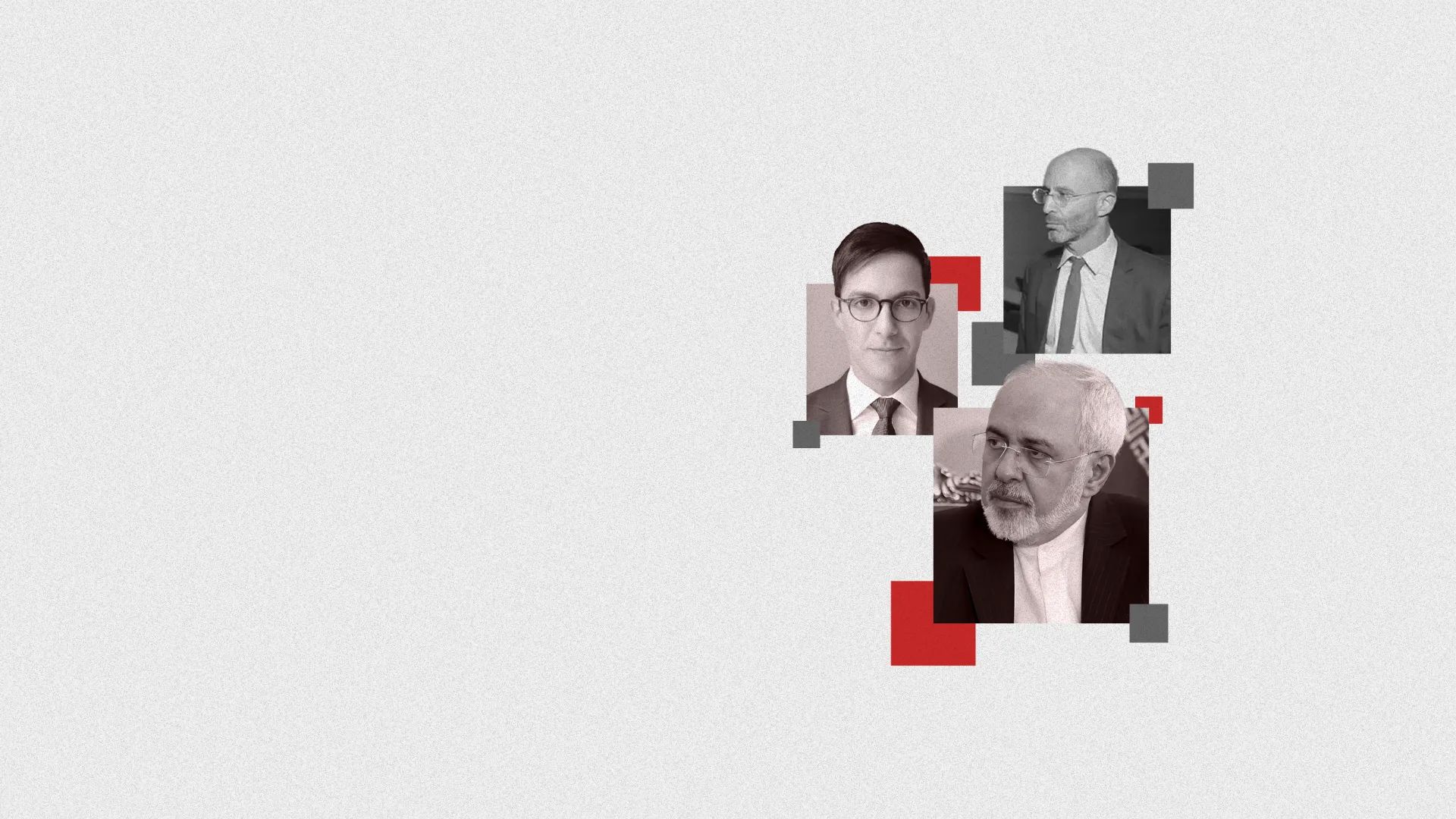
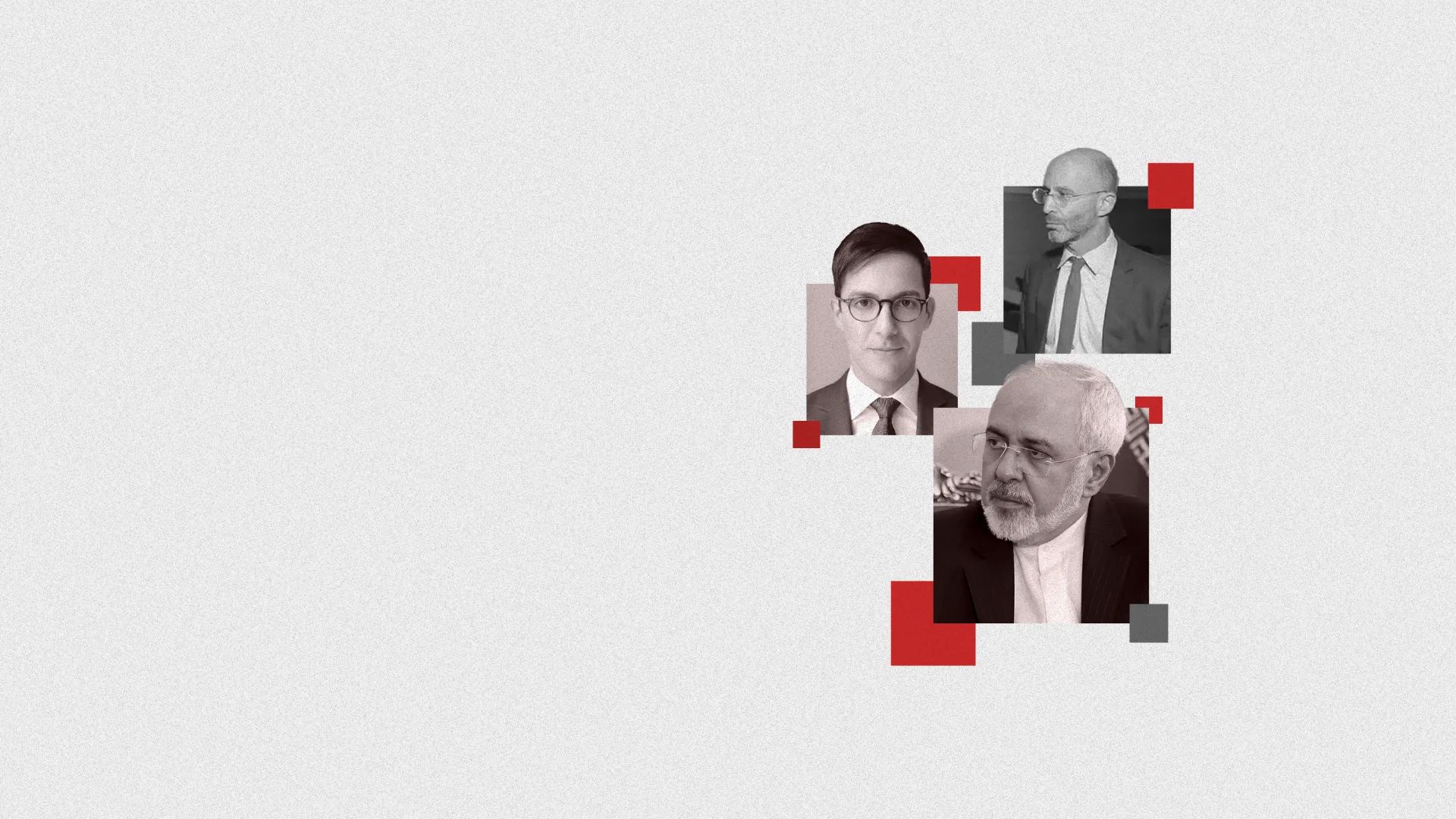
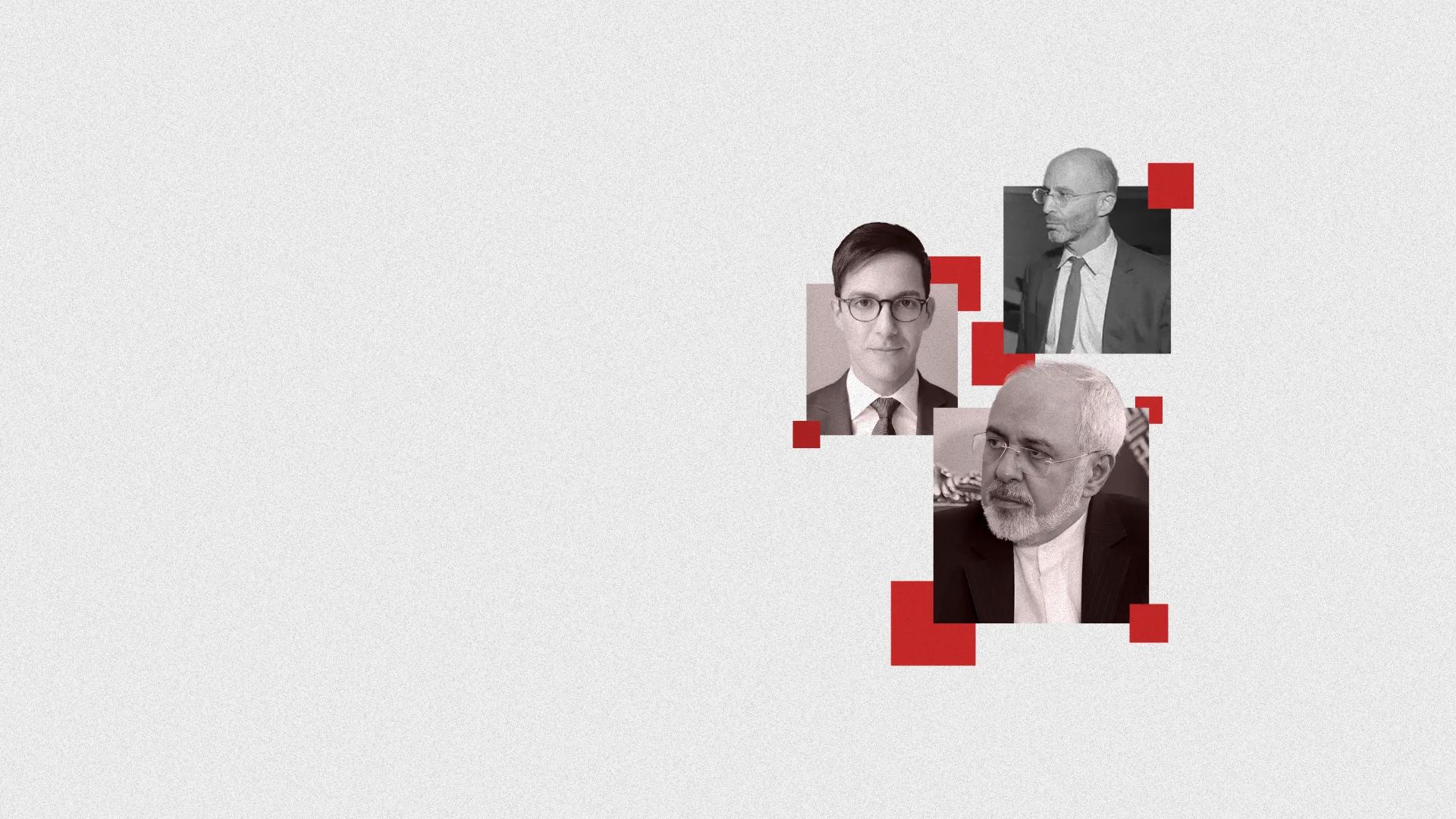
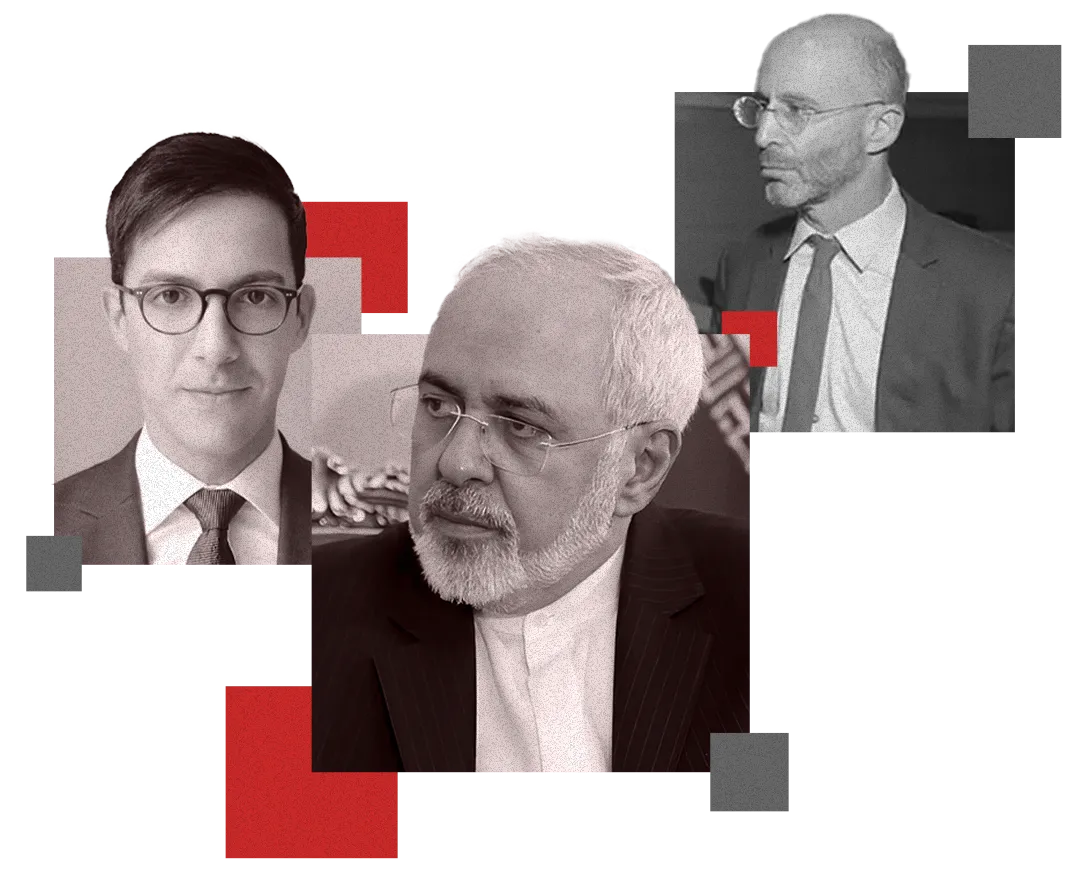
Guéhenno traveled to Tehran in December 2014, and participated in a conference hosted by the IPIS, titled World Against Violence and Extremism (WAVE), according to the emails and state media. Guéhenno delivered a speech at that conference.
Most Western states and think tanks steered away from the conference due to the IPIS’ history and its links to the Iranian government. The conference only attracted foreign ministers from three friendly countries, Syria, Iraq, and Nicaragua, according to the state media. The U.K.’s former Foreign Secretary Jack Straw and one-time French Prime Minister Dominique de Villepin also attended
“After the Holocaust denial conference, few reputable foreign institutes ever attended an event organized by the IPIS,” said Clawson.
Zahrani said in a private speech to the IPIS members, a copy of which was seen by Iran International, that he tried to use the WAVE conference to end the think tank’s isolation.
“It finally happened and the IPIS was put under sanctions… As the head of IPIS, removing sanctions was very important to me... I insisted on holding [WAVE] conference at the IPIS, so the sanctions on the IPIS are removed,” he said.
It was not clear which sanctions Zahrani was referring to, as the United States and other countries never officially placed the IPIS on a sanctions list.
Zahrani was an advisor to Zarif and a member of the Revolutionary Guards, an Iranian military organization currently designated as a foreign terrorist organization by the United States.
The IPIS continues to be vocal about its anti-Israel policies. The current head of the IPIS, Mohammad Hasan Sheikholeslami, congratulated Hamas two weeks after their October 7, 2023 attacks - which killed 1,200 Israelis - for their “glorious victory” and said the Palestinian group “disintegrated the fake concept of Israel,” according to an interview published on the IPIS website.
A sanctions attorney based in Washington said that even though the Crisis Group is headquartered in Brussels, if there was any involvement of a US individual within the organization in the MoU agreement, providing services to, or benefiting someone in Iran, without the issuance of a license by OFAC and without falling under the exemption for information exchange, that would have appeared to be a violation of the US sanctions on Iran.
The attorney, who requested anonymity, said that from a legal liability perspective, there is also a question of whether they complied with the registration requirements outlined in FARA or the Lobbying Disclosure Act if they were actively advocating for Iranian interests within the United States.
Jobson, the Crisis Group’s spokesperson told Iran International, “Potentially sensitive MOUs and other agreements involving funding from governments are reviewed by in-house and outside counsel to ensure that they comply with US law, including FARA and sanctions laws.”

LOBBYING FOR NUCLEAR DEAL

The emails showed the IPIS’s meetings with the Crisis Group began in 2014 when Iran and world powers were engaged in nuclear negotiations. The MoU was signed and implemented in 2016, the year sanctions were lifted on Iran in return for curbs on its nuclear and missile activities.
The Crisis Group played a significant role in shaping and advocating the Iran nuclear deal, according to its website, and many of the solutions that the Crisis Group offered were reflected in the interim agreements and the final deal, known as the Joint Comprehensive Plan of Action (JCPOA) which was signed in July 2015.
Zarif sent a private message to the Crisis Group, acknowledging its “significant contribution” to the deal, according to the Crisis Group’s website, and a senior U.S. official wrote: “I am sure you recognize your language in the final text”.
However, while the Crisis Group presented itself as an independent organization, Zarif perceived it more as a lobbying entity through which Tehran could advocate for its interests in Western capitals, particularly Washington, according to his 2021 memoir about the nuclear talks, The Sealed Secret.
According to Zarif, a draft document was created in 2014 by the Iranian foreign ministry as a roadmap for the nuclear negotiations, which was shared with the former European Union foreign policy chief Catherine Ashton. However, Iran was concerned that Ashton might not share that copy with the world powers, Zarif said, so “an additional copy” was also shared unofficially with the Crisis Group through a member who had connection with the US delegation.
Vaez was an Iran analyst at the Crisis Group at that time, and according to the emails, he maintained a close contact with Malley in the government.
“This initiative aimed to have the active members of the International Crisis Group pave the way for publicizing and lobbying the draft's content,” Zarif wrote in the book.
“Subsequent to this, utilizing the draft devised by the Iranian delegation, the Crisis Group unveiled a document on May 9, 2014, titled "Iran and the P5+1: Solving the Nuclear Rubik's Cube," Zarif said.
The Crisis Group said on its website that the ideas laid out in its May 2014 report "were rapidly integrated into formal discussions at the negotiating table." However, the Crisis Group did not mention any Iranian foreign ministry draft roadmap.
Jobson told Iran International: “Foreign Minister Zarif’s claim is false.... Crisis Group does not lobby on behalf of any foreign government.”
“In 2014, we shared drafts of our recommendations in the Rubik’s Cube report with all members of the P5+1. Not the other way around,” she added.
Some experts who were involved in the nuclear negotiations with Iran believe that in the run-up to the JCPOA, the Crisis Group and Vaez were by no means neutral.
David Albright, a nuclear scientist and former United Nations weapons inspector said throughout the nuclear negotiations, Vaez and the Crisis Group advocated positions that were greatly at odds with US positions and closely aligned with Iranian ones, especially on the concept of nuclear breakout - the timeframe estimated for a country to produce enough weapons-grade enriched uranium fuel for a single nuclear weapon.
American negotiators, and many outside nuclear experts, argued there had to be a clear metric to gauge the value of a final nuclear deal. And they, ultimately, settled on a one-year breakout time.
But Zarif and his negotiating team were initially completely against it. “Breakout is a hysteria, is a hype,” Zarif told Charlie Rose in an interview during the negotiations in 2015.
Zarif questioned the concept of breakout, arguing that the issue of Iran acquiring a nuclear bomb was primarily about intention rather than the amount of fissile material produced and stored. “For the past eight years … we had enough (enriched uranium) material to build eight bombs, and we never did,” he said.
Vaez sent an email to Zarif on October 2, 2014, saying he helped the Iranian government in their “public campaign against the notion of the breakout,” driven by his “national and patriotic duty.”
He challenged the breakout idea in his writings and public appearances, echoing Zarif’s arguments.
He wrote in an article for Al Jazeera in March 2015 that the breakout time was “a misleading gauge” of Iran's potential nuclear threat. He said a short breakout time in Iran was not necessarily a nuclear threat as the Iranian track record showed the Islamic Republic had the breakout time of less than six months, but that did not prompt weaponization.
In June 2014, Vaez wrote “The P5+1 is obsessed with the concept of breakout time,” and in a speech at the Chatham House, he said the focus on breakout time from four months to a year could result in losing an agreement with Iran which could be more dangerous for world security.
The same skepticism about breakout was reflected in the Crisis Group’s Rubik’s Cube report, mentioned by Zarif in his memoir. The article argued that “the resulting imprecision pushes all parties to adopt worst-case scenarios, rendering breakout estimates unrealistic as a basis for a durable agreement and policy.”
In the end, Vaez and the Crisis Group’s arguments failed. The breakout concept was included in the final nuclear deal, with Iran agreeing to limitations that kept it a year away from having enough fissile material for one bomb.
The Crisis Group acknowledged that it initially opposed the metric as an “artificial concept,” but Jobson said once it was clear the concept would be adopted, “we offered parameters to extend it beyond a year.”
Iranian hardliners - who demonize Zarif for his detente policy with the West - have attacked the Crisis Group and its members for their work on the nuclear deal. Vaez has not been able to return to Iran since 2014 due to security concerns, according to the Crisis Group. He did not respond to requests for comment.
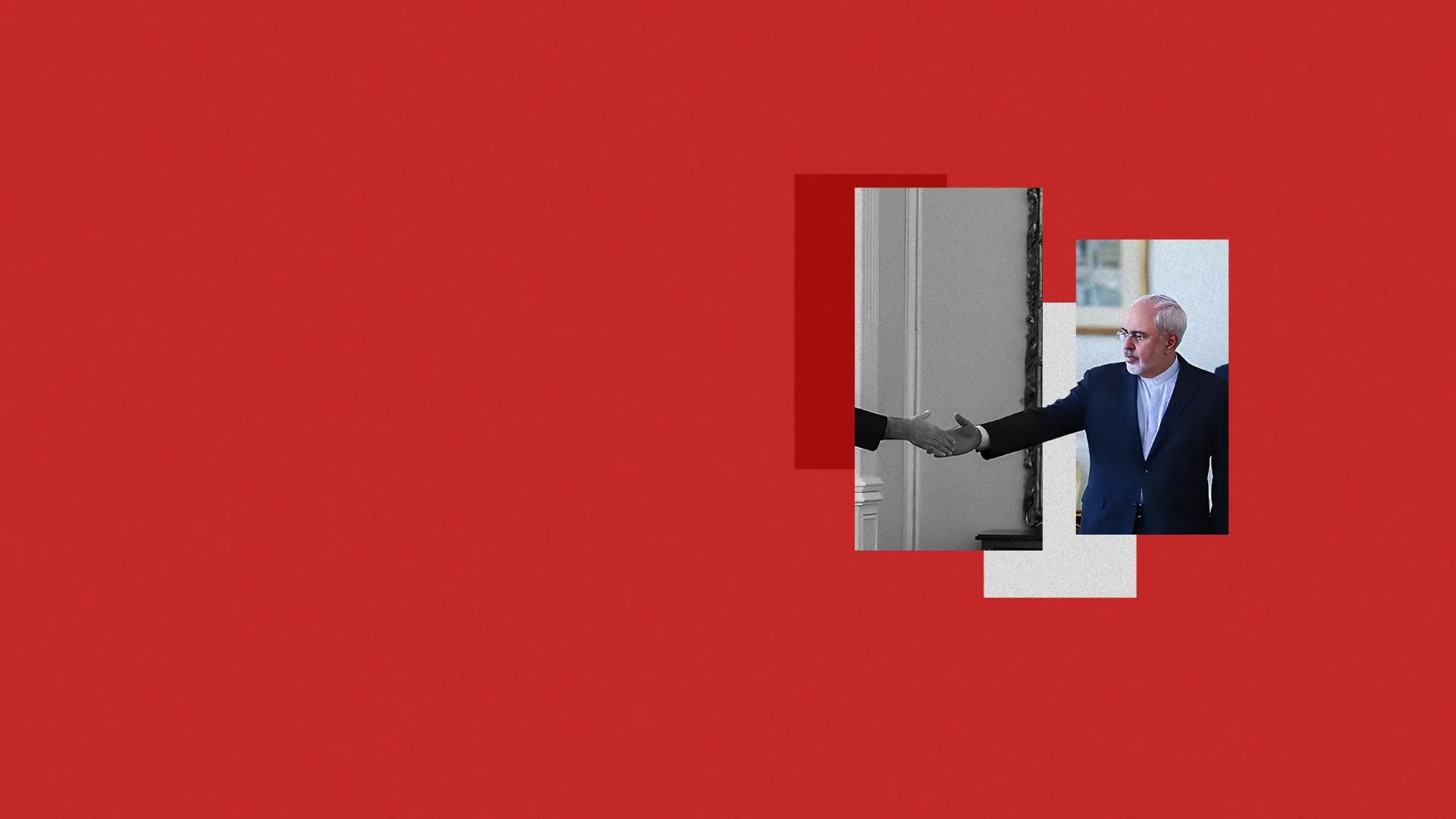
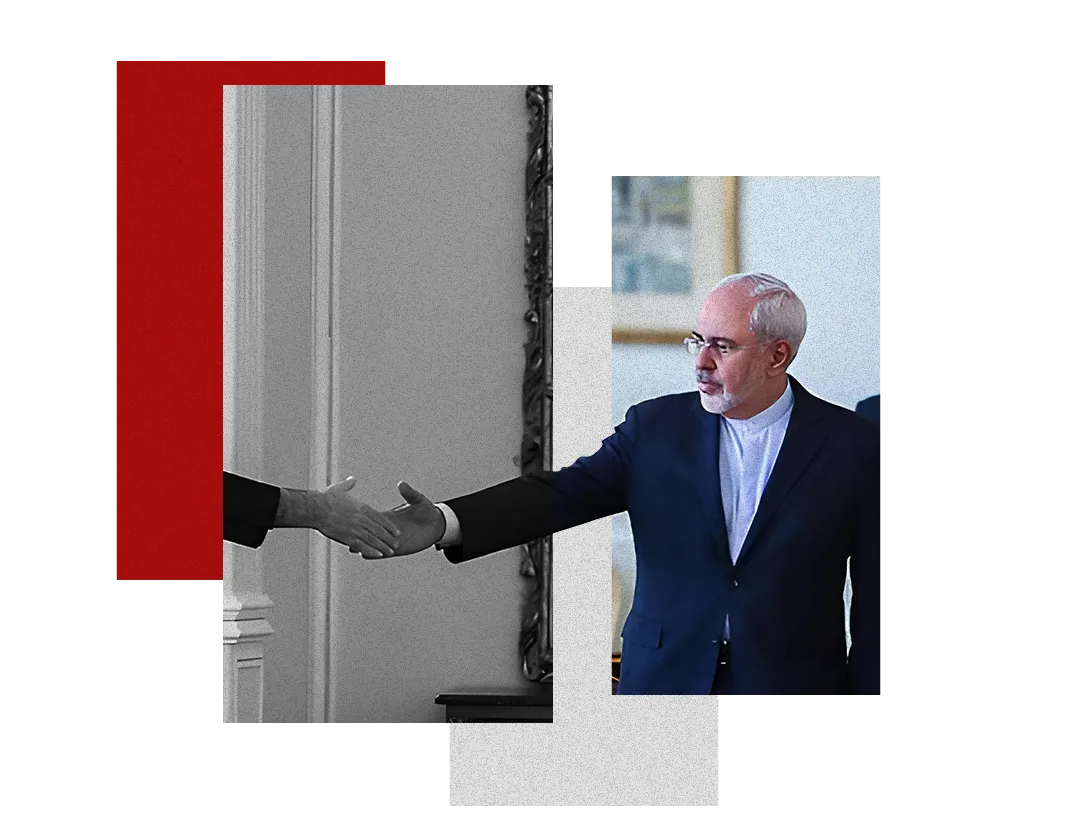
The emails showed the IPIS’s meetings with the Crisis Group began in 2014 when Iran and world powers were engaged in nuclear negotiations. The MoU was signed and implemented in 2016, the year sanctions were lifted on Iran in return for curbs on its nuclear and missile activities.
The Crisis Group played a significant role in shaping and advocating the Iran nuclear deal, according to its website, and many of the solutions that the Crisis Group offered were reflected in the interim agreements and the final deal, known as the Joint Comprehensive Plan of Action (JCPOA) which was signed in July 2015.
Zarif sent a private message to the Crisis Group, acknowledging its “significant contribution” to the deal, according to the Crisis Group’s website, and a senior U.S. official wrote: “I am sure you recognize your language in the final text”.
However, while the Crisis Group presented itself as an independent organization, Zarif perceived it more as a lobbying entity through which Tehran could advocate for its interests in Western capitals, particularly Washington, according to his 2021 memoir about the nuclear talks, The Sealed Secret.
According to Zarif, a draft document was created in 2014 by the Iranian foreign ministry as a roadmap for the nuclear negotiations, which was shared with the former European Union foreign policy chief Catherine Ashton. However, Iran was concerned that Ashton might not share that copy with the world powers, Zarif said, so “an additional copy” was also shared unofficially with the Crisis Group through a member who had connection with the US delegation.
Vaez was an Iran analyst at the Crisis Group at that time, and according to the emails, he maintained a close contact with Malley in the government.
“This initiative aimed to have the active members of the International Crisis Group pave the way for publicizing and lobbying the draft's content,” Zarif wrote in the book.
“Subsequent to this, utilizing the draft devised by the Iranian delegation, the Crisis Group unveiled a document on May 9, 2014, titled "Iran and the P5+1: Solving the Nuclear Rubik's Cube," Zarif said.
The Crisis Group said on its website that the ideas laid out in its May 2014 report "were rapidly integrated into formal discussions at the negotiating table." However, the Crisis Group did not mention any Iranian foreign ministry draft roadmap.
Jobson told Iran International: “Foreign Minister Zarif’s claim is false.... Crisis Group does not lobby on behalf of any foreign government.”
“In 2014, we shared drafts of our recommendations in the Rubik’s Cube report with all members of the P5+1. Not the other way around,” she added.
Some experts who were involved in the nuclear negotiations with Iran believe that in the run-up to the JCPOA, the Crisis Group and Vaez were by no means neutral.
David Albright, a nuclear scientist and former United Nations weapons inspector said throughout the nuclear negotiations, Vaez and the Crisis Group advocated positions that were greatly at odds with US positions and closely aligned with Iranian ones, especially on the concept of nuclear breakout - the timeframe estimated for a country to produce enough weapons-grade enriched uranium fuel for a single nuclear weapon.
American negotiators, and many outside nuclear experts, argued there had to be a clear metric to gauge the value of a final nuclear deal. And they, ultimately, settled on a one-year breakout time.
But Zarif and his negotiating team were initially completely against it. “Breakout is a hysteria, is a hype,” Zarif told Charlie Rose in an interview during the negotiations in 2015.
Zarif questioned the concept of breakout, arguing that the issue of Iran acquiring a nuclear bomb was primarily about intention rather than the amount of fissile material produced and stored. “For the past eight years … we had enough (enriched uranium) material to build eight bombs, and we never did,” he said.
Vaez sent an email to Zarif on October 2, 2014, saying he helped the Iranian government in their “public campaign against the notion of the breakout,” driven by his “national and patriotic duty.”
He challenged the breakout idea in his writings and public appearances, echoing Zarif’s arguments.
He wrote in an article for Al Jazeera in March 2015 that the breakout time was “a misleading gauge” of Iran's potential nuclear threat. He said a short breakout time in Iran was not necessarily a nuclear threat as the Iranian track record showed the Islamic Republic had the breakout time of less than six months, but that did not prompt weaponization.
In June 2014, Vaez wrote “The P5+1 is obsessed with the concept of breakout time,” and in a speech at the Chatham House, he said the focus on breakout time from four months to a year could result in losing an agreement with Iran which could be more dangerous for world security.
The same skepticism about breakout was reflected in the Crisis Group’s Rubik’s Cube report, mentioned by Zarif in his memoir. The article argued that “the resulting imprecision pushes all parties to adopt worst-case scenarios, rendering breakout estimates unrealistic as a basis for a durable agreement and policy.”
In the end, Vaez and the Crisis Group’s arguments failed. The breakout concept was included in the final nuclear deal, with Iran agreeing to limitations that kept it a year away from having enough fissile material for one bomb.
The Crisis Group acknowledged that it initially opposed the metric as an “artificial concept.” But Jobson said that once it was clear the concept would be adopted, “we offered parameters to extend it beyond a year.”
Iranian hardliners - who demonize Zarif for his detente policy with the West - have attacked the Crisis Group and its members for their work on the nuclear deal. Vaez hasn’t been able to return to Iran since 2014 due to security concerns. He did not respond to requests for comment.

